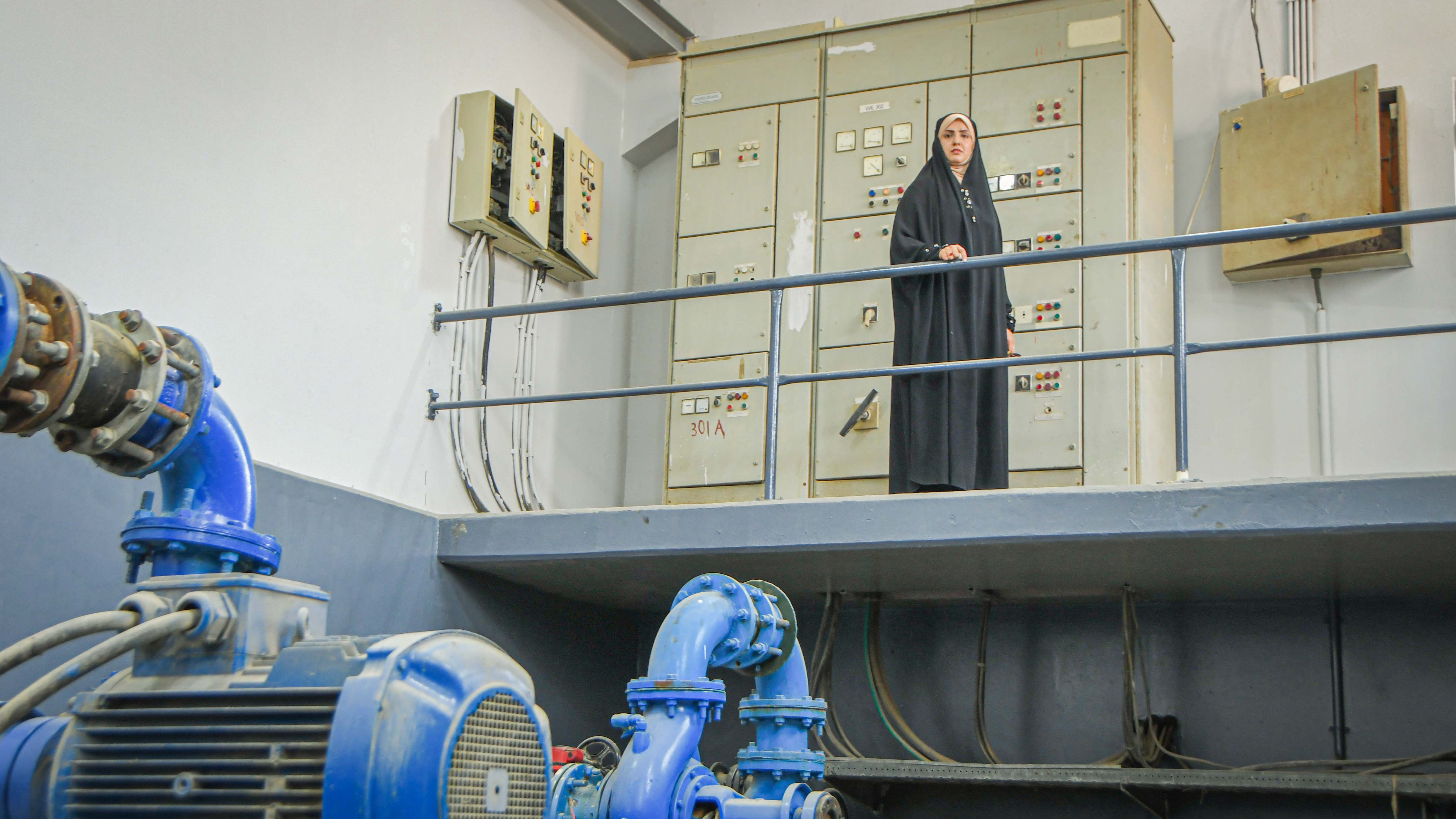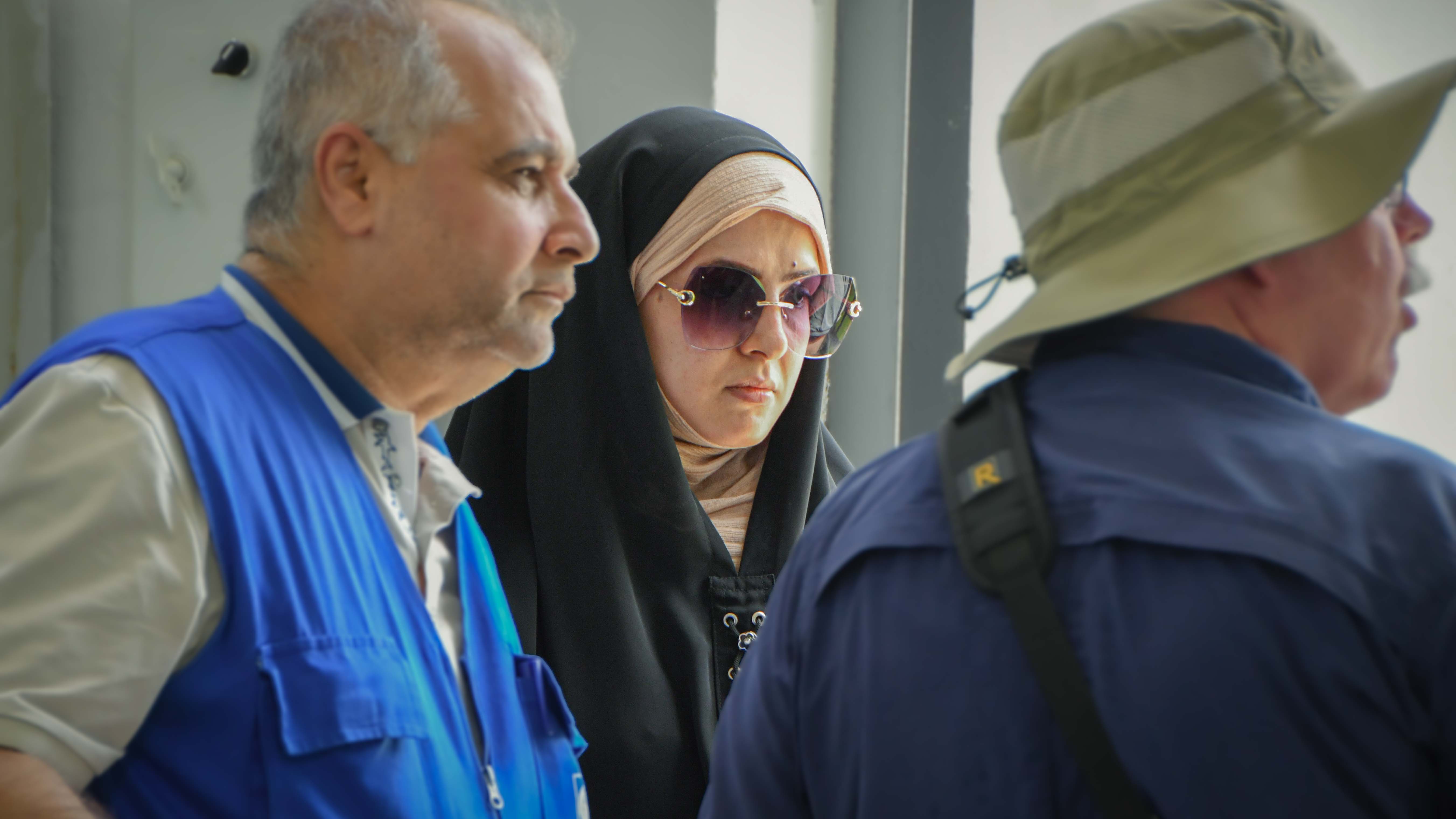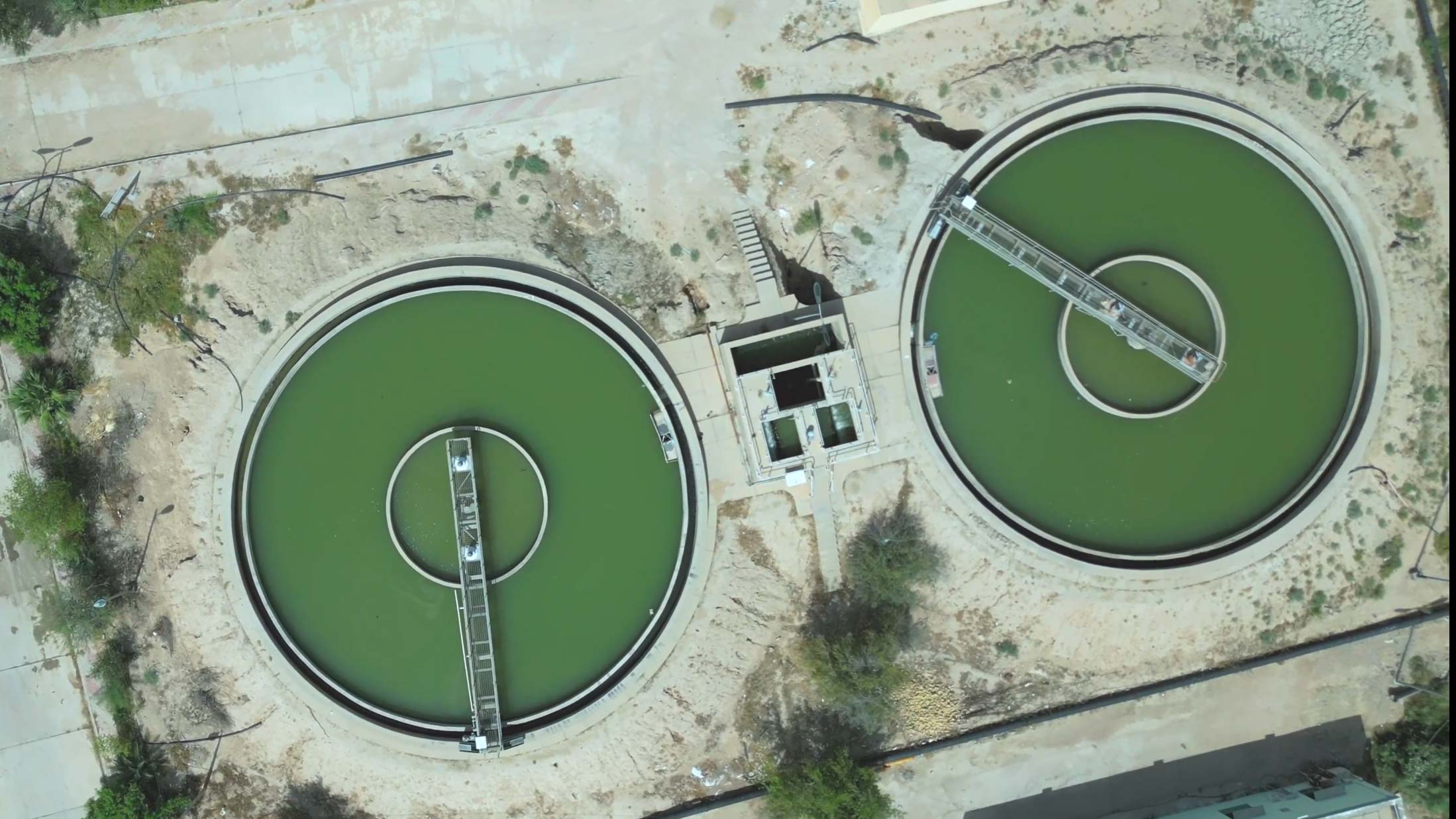Fawatim's Story of Engineering and Women Empowerment in Iraq
June 19, 2023

As you drive south in Iraq towards the coastal areas of Basra, you might not think that the region suffers from a serious water availability crisis. That same crisis renders the network of water plants that surround the districts of Khor Al-Zubair, Safwan, and Um Al-Qasr a symbol for mitigation and resilience.
These vital facilities provide clean water to nearly 250,000 residents of Iraq's second largest city. At the heart of their operation is Fawatim, a determined 34-year-old female engineer from Al-Qibla.
Against the backdrop of a predominantly male profession in this part of Iraq, Fawatim has been a pioneer in more ways than one. For a decade, she has been at the center, diligently supervising daily operations and maintenance of these water plants. But this journey hasn't been an easy one; for many years, Fawatim was the sole female figure in a landscape of hard hats-wearing male coworkers.

It is, perhaps, Fawatim's determination and resilience that unknowingly helped shape a new way for female engineers in Basra. The path she carved out was eventually followed by more women, an evolution facilitated by the recent policies of the new Iraqi government. As part of an overarching goal to improve gender equality, these policies ensure a higher representation of women in various public sectors.
Fawatim’s determination goes beyond the societal barriers. Her commitment to her faith and traditions has seen her performing the hard tasks of her profession while wearing an "abaya", a traditional outfit worn by many Muslim women in the region. Far from being an obstacle, she sees it as part of who she is, an expression of her identity that she carries proudly even amidst the challenges of her job.
Her journey is not without its logistical challenges. The project in Khor Al-Zubair is a significant distance from Basra's city center where she resides, making her daily commute an added hurdle to her already demanding role. However, Fawatim faces these challenges head-on, with a resolution shaped by her belief in the strength and capabilities of women.

When asked about her experience, Fawatim states, "It wasn't easy being the only woman on the project, but I had no choice but to persevere until things got better." Her conviction is rooted in a firm belief that women are as capable as their male counterparts in taking on any position, no matter how physically demanding or challenging it may be.
She adds, "Only women can pave the way for other women." Through her own example, Fawatim is living proof of this statement. Her journey isn’t just about breaking barriers in her profession; it’s about inspiring other women to break their own.

Khor Al-Zubair water plant was rehabilitated, and inaugurated recently by UNDP with the support of the Kingdom of Netherlands.

 Locations
Locations